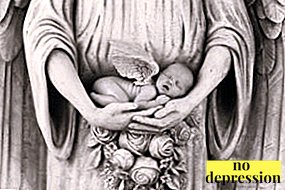"Everybody lies." "Everybody lies!" - the phrase that belonged to the cynical doctor House from the television series of the same name is perfectly fair. Statistics show that each of us tells lies at least 50 times a day! Not in all cases, this is a conscious lie. Reservations, self-deception, too, are counted. It is often easier to lie than to go into long explanations. But it’s very unpleasant to be deceived, especially on some important issue. How to recognize a lie?
Signs of a liar
A person may be a sophisticated liar and a wonderful actor, but his own body will betray him. If you are attentive enough, you will easily learn to understand when they tell you the truth, and when they cheat. The following signs will help recognize the liar:
-
 the gleam in the eyes and dilated pupils, as a result of stress, which a person experiences, being afraid of being exposed;
the gleam in the eyes and dilated pupils, as a result of stress, which a person experiences, being afraid of being exposed; - restless, "running" look, or, conversely, the interlocutor unnaturally long and intently looks into your eyes;
- abrupt change of intonation, breaking voice;
- excessive sweating;
- the person is too pale or, on the contrary, blushes sharply;
- If you imagine the dial on the floor, then looking down, the liar will hold his gaze on the position of the hands, approximately, between 4 and 6 o'clock;
- women, speaking untruths, often unconsciously look up, approximately, between 9 and 11 o'clock;
- the cheater often blinks;
- facial expression does not always correspond to what a person says.
Long pauses and frequent repetitions of individual phrases indicate that the interlocutor has to carefully select the expression, think about what he says, and he tries to remember his own words so as not to err in the future.
How to expose an experienced liar?
Pathological liars are often quite good with emotions and look into the eyes. They themselves believe in what they say, do not experience stress, their speech is calm, their breathing is even. But here involuntary reactions, movements of arms or legs, can still betray the deceiver. How can you recognize a lie by the gestures of the speaker? Watch the other person and his body will tell you the truth:
- The man takes a closed pose. Legs and hands in a crossed position, hands on the table, palms down, indicate that the other person does not want to open up to you and prefers to keep silent about something.
-
 During a conversation, a person cannot take a comfortable position, constantly changing him, as if he does not know "where to go." This behavior indicates that the topic of conversation is unpleasant to the interlocutor, he quickly wants to stop it.
During a conversation, a person cannot take a comfortable position, constantly changing him, as if he does not know "where to go." This behavior indicates that the topic of conversation is unpleasant to the interlocutor, he quickly wants to stop it. - The speaker constantly plays with the lighter, goes through the rosary, rubs the napkin, sometimes involuntarily touches his lips, cheeks, and nose.
The gestures of a person who speaks the truth are directed towards the heart, the solar plexus. If your interlocutor brings his hands, palm turned to his chest or stomach, this indicates the sincerity of his words and intentions.
How to check the sincerity of the interlocutor
There are several simple ways to bring a liar to "clean water":
- Sharply change the subject. The liar is willing to get rid of the need to invent a story on the go, while the person who speaks the truth will be surprised and make an attempt to end the story.
- Ask to retell some part of the story, ask again, pretend that you did not understand something. If a person comes up on the go, it will probably be difficult for him to go back to any moment and accurately reproduce it anew.
- How to recognize a lie when a person prepared his lie and mentally “rehearsed” it? In this case, the interlocutor tries to quickly say what he wanted, briefly and dryly. Ask him about some minor details. This will confuse him and confuse him. If at the same time he blushed and speaks after a pause, then be sure that you are being deceived.
- When a person comes up with his story on the go, he often goes into unnecessary details. This gives him the opportunity to think about what to say next. Confuse him with an unexpected question that is completely irrelevant to the topic. And then go back to the conversation again. It will be hard for a liar to remember what he was talking about and find the thread of his own story.
-
 If you suspect that your interlocutor is lying, listen with interest to him, do not interrupt. After he has answered your question, do not rush to speak, pause. You can frown, as if something is embarrassing in his words. The person will start to get nervous, stray and lay out new details.
If you suspect that your interlocutor is lying, listen with interest to him, do not interrupt. After he has answered your question, do not rush to speak, pause. You can frown, as if something is embarrassing in his words. The person will start to get nervous, stray and lay out new details.
If you blame the lie for telling the truth, the person will be embarrassed and offended. His reaction would rather be: "I will not tell you anything again." The liar will react more emotionally, prove his case, add new details. Most likely, you will hear the phrases: "Yes, for whom you accept me!", "How dare you accuse me of that I am deceiving!"
How to catch a partner in treason
How can you recognize a lie, if you suspect a partner in treason? Please note that this is not so simple. Both men and women tend to hide relationships "on the side" to the last, therefore, to achieve true recognition is unlikely to happen. And yet, pay attention to the following signs, which are inherent in all traitors:
- The best defense is attack. To a direct question or even an innocent joke about the adventures of “left”, the wrong partner will react aggressively, make excuses, and may even accuse you of treason. Moreover, "attack" most often men. Girls, on the contrary, often feeling their guilt, try to somehow smooth it off in front of their partner.
- Renowned psychologist James Pennebaker claims that a liar avoids these words: me, my, our, to my mind. Thus, the deceiver tries to distance himself from what he says, unconsciously disclaims responsibility for what was said.
- If the question: "With whom did you spend the last evening?" or "What is the name of your new assistant?" if you hear a rather vague answer, the partner's voice timbre changes, then we advise you to ask a couple more leading questions. Most likely, you are trying to deceive.
 Note that the liar's vocabulary is changing. Parasite words appear in it: for example, so to speak; interjections: uh, uh, and; words of uncertainty: some sort of something. You may also notice that a person too often justifies himself and uses such words: it’s just.
Note that the liar's vocabulary is changing. Parasite words appear in it: for example, so to speak; interjections: uh, uh, and; words of uncertainty: some sort of something. You may also notice that a person too often justifies himself and uses such words: it’s just.
All these signs indicate that you are lying. But, nevertheless, do not give jealousy to deprive yourself of reason. If there are no other factors that talk about partner’s infidelity, you shouldn’t make a family scandal because he vaguely answered the question or forgot what the name of a pretty colleague is.
How to understand that the child is deceiving you
Parents are very important that children tell them the truth. How can you recognize a lie if you suspect that a child is deceiving you? Children are not as good at hiding the truth as adults. Use our tips to understand whether your baby is sincere or not:
- When answering a question, the child speaks slowly, stretching his words. Thus, he gains time to ponder his lies.
- Children are still not very good at emotions. The baby knows that he is doing poorly, so he will turn red and look embarrassed.
- If a child avoids eye contact, this is another reason to doubt the veracity of his words. Most likely, he is afraid of punishment and does not want to admit his deed.
- Nervous movements, touching the lips, eyebrows, ear, left side of the face and clothing indicate that the conversation gives the child discomfort.
- Intense posture, constant change of facial expressions, quick speech also indicate that the child wants to mislead you.
To disaccustom the child to lie, do not punish him for offenses, but explain why it is impossible to do so. If a child honestly admitted that he broke or broke something, first praise him for telling the truth. Of course, give him an example!
Why do people lie?
In fact, not only vile people and scammers lie. Each of us is deceiving others for personal reasons. Here are the most common ones:
- a person wants to appear better than he is;
- a lie must hide an unseemly deed;
- with the help of deception, the interlocutor wants to protect the feelings of another person (the so-called "lie for good");
- sometimes, to get away from you, it's easier to lie than to embark on lengthy explanations.
A lie is not bad if it does not harm another person. Much worse truth that can hurt. After all, for example, to the question of a full girl: "Have I lost weight?" it is better to lie: “Of course” and raise a person’s mood than to offend with an unpleasant truth.
People lie in order not to give out someone else's secret. Cheerful and open people always slightly embellish another joke or interesting story. In life there is no "black" and "white", do not forget about halftones. And straightforwardness is not always appropriate, and a lie is not always evil.

 the gleam in the eyes and dilated pupils, as a result of stress, which a person experiences, being afraid of being exposed;
the gleam in the eyes and dilated pupils, as a result of stress, which a person experiences, being afraid of being exposed; During a conversation, a person cannot take a comfortable position, constantly changing him, as if he does not know "where to go." This behavior indicates that the topic of conversation is unpleasant to the interlocutor, he quickly wants to stop it.
During a conversation, a person cannot take a comfortable position, constantly changing him, as if he does not know "where to go." This behavior indicates that the topic of conversation is unpleasant to the interlocutor, he quickly wants to stop it. If you suspect that your interlocutor is lying, listen with interest to him, do not interrupt. After he has answered your question, do not rush to speak, pause. You can frown, as if something is embarrassing in his words. The person will start to get nervous, stray and lay out new details.
If you suspect that your interlocutor is lying, listen with interest to him, do not interrupt. After he has answered your question, do not rush to speak, pause. You can frown, as if something is embarrassing in his words. The person will start to get nervous, stray and lay out new details.

